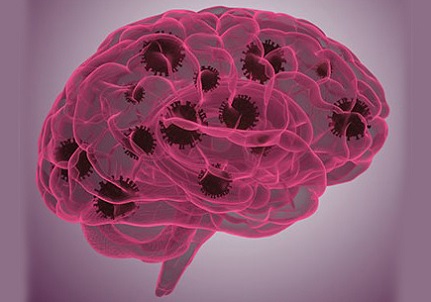EEG Studies Show That Even Mild COVID-19 Infections Can Affect Brain Cognitive Functions
Nikhil Prasad Fact checked by:Thailand Medical News Team Jun 22, 2024 1 year, 5 months, 3 weeks, 5 days, 5 hours, 38 minutes ago
COVID-19 News: COVID-19, caused by the SARS-CoV-2 virus, is well-known for its impact on the respiratory system, but recent research reveals it also affects the brain. A recent study by researchers from Tsinghua University, Beijing-China that is covered in the
COVID-19 News report, focused on the cognitive effects of mild COVID-19 infections, particularly in children and adolescents, using electroencephalogram (EEG) data, has provided valuable insights.
 EEG Studies Show That Even Mild COVID-19 Infections Can Affect Brain Cognitive Functions
EEG Studies Show That Even Mild COVID-19 Infections Can Affect Brain Cognitive Functions
Study Overview: Exploring Cognitive Changes
Researchers conducted a study with 185 participants, collecting EEG data before and after they contracted mild COVID-19. The study included four age groups: children (under 10 years), adolescents (10-20 years), young adults (20-27 years), and adults (over 27 years). EEG data helps in understanding brain activity and cognitive functions, offering a window into how the virus affects the brain.
Findings: Brain Activity and Cognitive Impact
The study's spatial analysis showed smaller changes in brain network patterns in children and adolescents, indicating a milder cognitive impact compared to adults and young adults. However, all age groups exhibited increased low-frequency EEG activity, particularly in the theta and delta bands, which are associated with cognitive functions such as memory and attention.
Increased Neural Activity: What It Means
After recovering from COVID-19, participants showed heightened synchronized neural activity in low-frequency bands. This increase suggests that the brain might be working harder to maintain normal cognitive functions post-infection. For young adults, the cognitive impact was more pronounced, with significant reductions in brain connectivity, especially in regions associated with memory and decision-making.
Behavioral Symptoms: Long-term Effects
The study also included a questionnaire about long-term symptoms like insomnia, mood disorders, and memory problems. Young adults reported the highest prevalence of these cognitive issues, followed by adults. Children and adolescents reported fewer symptoms, aligning with the EEG findings of a milder impact.
Interpreting EEG Data: Complexity and Chaos
Researchers used various EEG analysis techniques to assess changes in brain activity. They found an increase in low-complexity synchronized activity and a decrease in overall EEG complexity post-infection. This suggests that while the brain remains active, it shows more chaotic and less organized patterns, which could be linked to cognitive difficulties.
Age-Dependent Vulnerability: Who Is Most Affected?
Young adults experienced the most significant cognitive impact, followed by adults and adolescents. Children under 10 showed the least effect, possibly due to more resilient brain networks or compensat
ory mechanisms. These age-dependent differences highlight the need for targeted rehabilitation strategies.
Implications for Recovery: Addressing Long COVID
The findings underscore the importance of understanding and addressing the cognitive effects of COVID-19, especially in younger populations. Rehabilitation strategies should focus on mitigating long-term cognitive impacts and supporting those affected by long COVID symptoms.
Conclusions: A Call for Further Research
This study sheds light on the neurological impacts of mild COVID-19, emphasizing the need for ongoing research. Understanding how the virus affects the brain across different age groups can help develop effective treatments and support systems for those experiencing long-term cognitive symptoms.
Future Directions: Enhancing Our Knowledge
Further studies are essential to explore the full spectrum of COVID-19's impact on the brain, including longitudinal research to track long-term changes. By expanding our knowledge, we can better support individuals recovering from COVID-19 and address the ongoing challenges of the pandemic.
The study findings were published in the peer reviewed journal: BMC Medicine.
https://link.springer.com/article/10.1186/s12916-024-03481-1
For the latest
COVID-19 News, keep on logging to Thailand Medical News.
Read Also:
https://www.thailandmedical.news/news/researchers-warn-that-even-mild-covid-19-can-cause-retinal-microvascular-changes-of-the-eyes
https://www.thailandmedical.news/news/study-finds-high-plasma-levels-of-neurofilament-light-chain-in-those-who-had-mild-covid-19-but-are-having-neurocognitive-symptoms
https://www.thailandmedical.news/news/breaking-university-of-alabama-discovers-that-mild-covid-19-causes-brain-temperature-elevation-and-free-water-increases-in-the-brain
